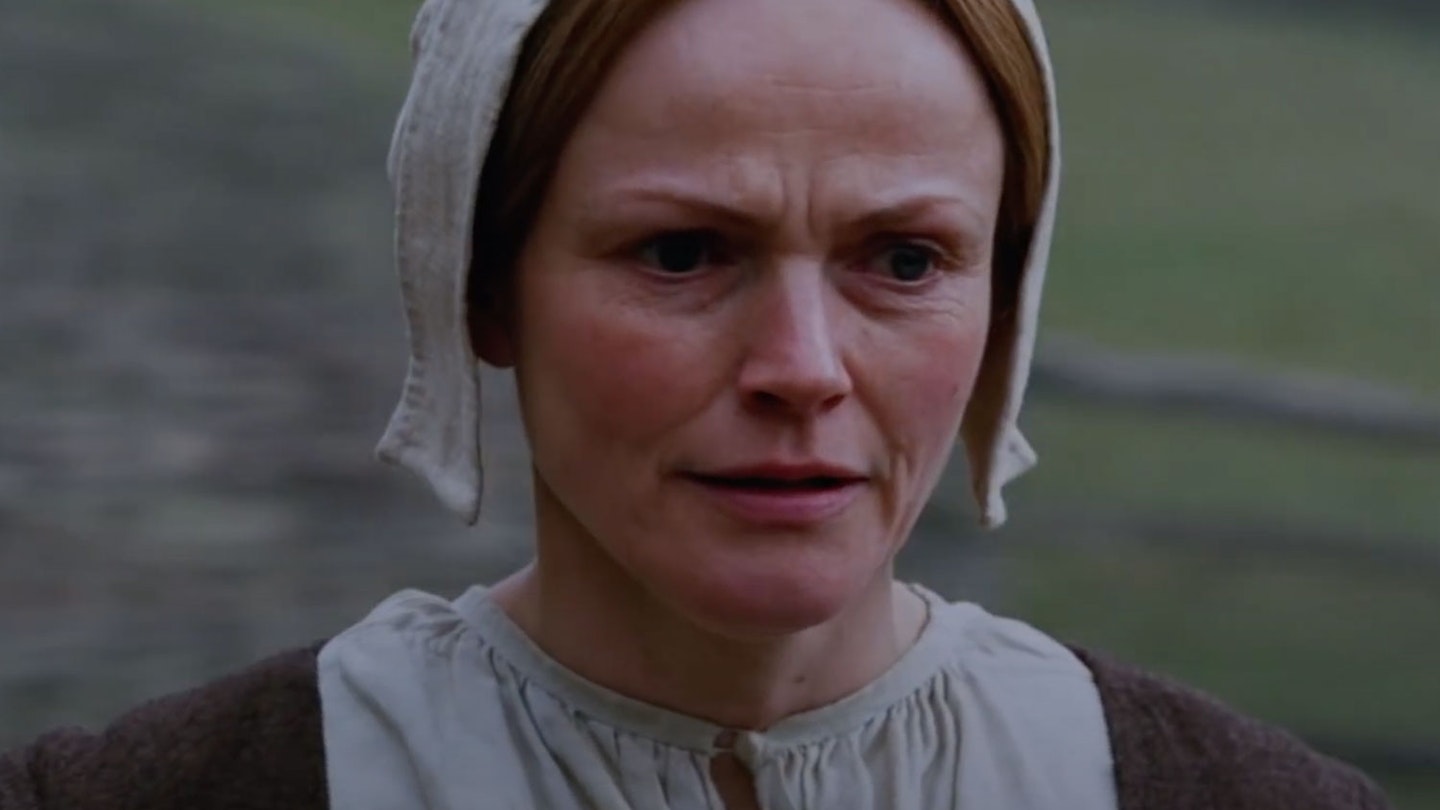The incredible Maxine Peake (Funny Cow, Gwen) puts in another blazing performance as the titular protagonist of writer/director Thomas Clay’s visceral 17th-century religious Western. Living with her much older, cruel, puritanical husband John (Charles Dance) and their young son, Fanny is resigned to the trudging obedience of her life on their isolated farm until the arrival of young couple Thomas (Freddie Fox) and Rebecca (Tanya Reynolds) turns her world on its head. On the run from the law, the pair soon reveal that they follow a new kind of religion — one which would develop into Quakerism — which makes Fanny question everything she has held to be true. The effects of her awakening are seismic, and blisteringly cathartic.
This is no staid history lesson – the tension spills over into unimaginable violence.
Authenticity is key to every aspect of Fanny Lye Deliver’d, which expertly frames the turbulent post-Civil War period through the eyes of one ordinary woman. Writer/director Thomas Clay (The Great Ecstasy Of Robert Carmichael, Soi Cowboy) has spent the best part of a decade crafting his film, and all that attention to detail is writ large on screen. The farmhouse set, which houses the entirety of the action, is built using tools and techniques of the day and, within it, cinematographer Giorgos Arvanitis shoots fluidly in the round, capturing first Fanny’s claustrophobic existence, and then — in a spectacularly choreographed explosive final sequence awash with earthy tones of mud and blood — the widening of her horizons. It’s all set to the evocative tones of Clay’s own score, which contains the familiar hooks and cues of ’60s and ’70s Westerns but is played on instruments from the era.
This is no staid history lesson, however. As puritanical tradition and new ideologies butt heads, the tension spills over into unimaginable violence. And, in the middle of it all, Peake is exceptional as a put-upon woman opening her eyes to the abuse she has suffered in the name of faith, and the fact that she deserves better.
